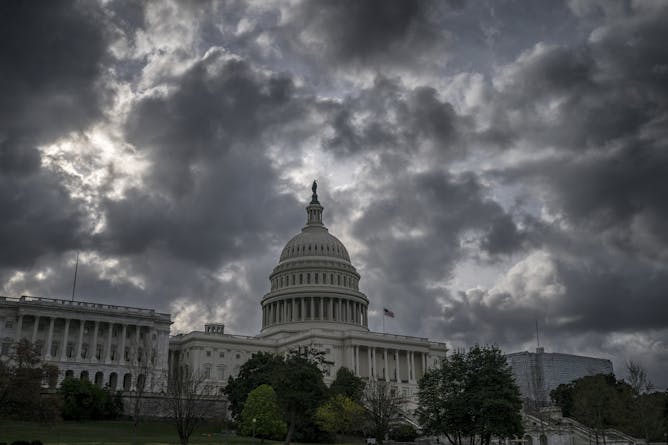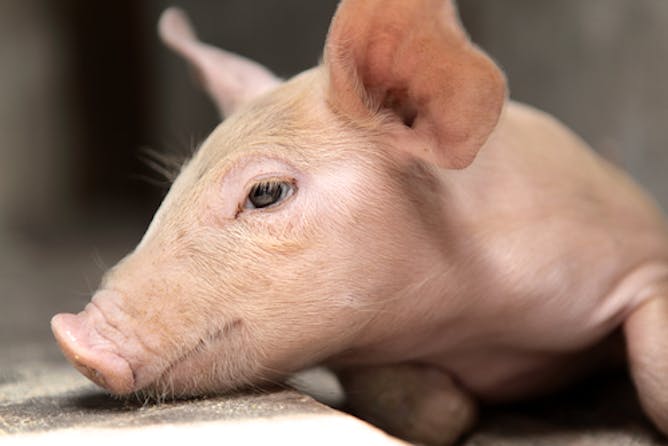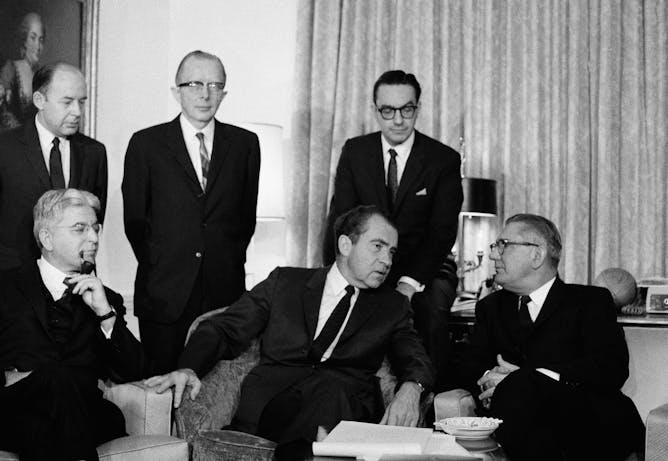|
|
|
Editor's note
|
|
The Mueller report’s out. Now what? Law professor Charles Tiefer, who served as a lawyer for the House Iran-Contra Committee investigation, says the House will likely take up where the heavily redacted and incomplete report leaves off. “The version of the report released is only the start of wide-ranging and intensive House investigations,” writes Tiefer, who spells out where the House can mount fruitful – and
necessary – inquiries.
Pigs made big news this week, or at least their brains did, when a study showed activity in pig brains four hours after they had been slaughtered. Questions immediately arose: could the same be true in humans and, more fundamentally, when does death occur? University of Florida neurologist Katharina Busl analyzes the study and explains for lay people something that neuroscientists already know.
Central bank independence is a bedrock principle of modern economies, deemed essential to ensuring policymakers at the Federal Reserve and elsewhere make decisions about interest rates based on evidence – not politics. But the notion is under stress as governments across the globe – including the Trump administration – increasingly meddle. Political economist Andreas Kern explains why political interference is dangerous.
|
Naomi Schalit
Senior Editor, Politics + Society
|

|
|
Top stories
|

Morning clouds cover Capitol Hill in Washington, April 12, 2019.
AP/J. Scott Applewhite
Charles Tiefer, University of Baltimore
The Mueller report is out, heavily redacted and the investigative materials it's based on aren't public. That's where Congress comes in, writes a former House counsel. Now they can investigate.
|

A recent study of the brains of decapitated pigs showed activity in their brains four hours later.
Ivan Loran/Shutterstock.com
Katharina Busl, University of Florida
A recent study on the brains of pigs suggested that some activity could be restored even after the porkers had been dead for four hours. A neuroscientist who specializes in brain death explains.
|

Nixon convinced Fed Chair Arthur Burns, seated left, to lower interest rates, helping him win re-election in 1972.
AP Photo
Andreas Kern, Georgetown University
President Trump has been attacking the Federal Reserve for months and recently said he might nominate two political allies to its board. An economist explain what typically happens next.
|
Politics + Society
|
-
Catesby Holmes, The Conversation
The full report on the special counsel's Trump investigation has now been made public. As people, Congress and prosecutors nationwide dig into Mueller's findings, here are three key issues to watch.
-
Gary John Adler Jr, Pennsylvania State University
Travel along the U.S.-Mexico border and meeting migrants can build empathy for people without papers.
|
|
|
|
|
|
From our international editions
|
-
Asmin Fransiska, Universitas Katolik Indonesia Atma Jaya ; Abdil Mughis Mudhoffir, University of Melbourne; Lailatul Fitriyah, University of Notre Dame
We ask political and human rights experts to analyse what Jokowi's victory means, based on this early quick count, for civil liberties and the protection of human rights in Indonesia.
-
Dr Emily Guerry, University of Kent
One of the most sacred relics in the Christian world was saved from the Notre Dame fire. Here is its history.
-
Jacob Negrey, Boston University
Human-to-ape disease transmission is thought to be a severe threat to the survival of great apes.
|
|
|
|
| |
| |
|
|
|
|
|
|
|